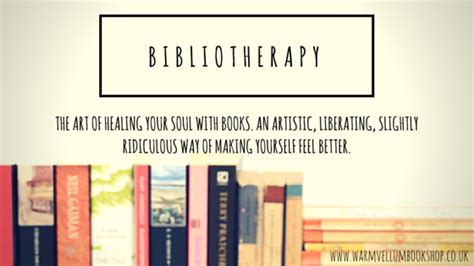Bibliotherapy: Healing With Books
Seeking emotional and psychological shelter in literature has been a therapy method for ages. Pursuing mental health treatment in various forms can be daunting, but our literary forbearers found that reading a good book could help with anxiety, depression, and other mental issues. This all started back in ancient Greece (or earlier, depending on who you ask). According to goodtherapy.org:
“The use of literature as a healing method dates back to ancient Greece. When Grecian libraries were seen as sacred places with curative powers. In the early nineteenth century, physicians like Benjamin Rush and Minson Galt II began to use bibliotherapy as an intervention technique in rehabilitation and treating mental health issues. During World Wars I and II, bibliotherapy was used to help returning soldiers deal with physical and emotional concerns. In a 1916 article published in The Atlantic Monthly, Samuel Carothers defined bibliotherapy as the process of using books to teach those receiving medical care about their conditions, and Dorland’s Illustrated Medical Dictionary, published in 1941, officially recognized this modality as a form of mental health treatment.”

- Clinical Bibliotherapy: used by trained professionals; meant to deal with significant emotional or behavioral issues
- Developmental Bibliotherapy: used by teachers, librarians, and parents; meant to help people grow and develo
As patients search for the materials their therapists have recommended, librarians must understand that serious and therapeutic literary needs like these are important. There are many benefits to utilizing books for therapy, and mantracare.org lists them as follows:
- Books are an affordable way to work through personal mental health struggles.
- Books can provide insight, hope, and comfort for those struggling with mental health concerns.
- Bibliotherapy connects people by working through similar struggles together.
- Books are easily accessible, so people do not have to go out of their way to find them.
- A lot of mental health concerns are relatable to books that are being published today.
- Other forms of therapy can become expensive and frustrating, whereas books can be a cheaper and more readily available option for treatment.
Books can help treat many conditions, especially when the characters or problems written about are relatable to the reader. Libraries can be an excellent resource for helping people find the information they need. Also, when developing the collection, it’s ideal to consult local mental health professionals to see what books they recommend to their patients. A collaborative relationship between the mental health community and the local libraries can only be beneficial, especially if patrons are aware of it. If the health professional recommends the book and refers the patient to their local library for free access, the librarian can help them locate it. Also, they can refer the patron/patient to similar books throughout the library and other electronic resources.
Once the patient/patron has the necessary material, they can begin their bibliotherapy. According to PsychologyToday.com, “In a therapeutic setting, bibliotherapy is thought to be effective because it provides an additional outlet for patients to work through problems and can help individuals recognize that they are not alone in their struggles. This process may occur in four stages:
- Identification: The reader affiliates with a character in the text and identifies with their problems and goals.
- Catharsis: The reader experiences the character’s emotions, struggles, and hopes from a safe, removed position.
- Insight: The reader recognizes similarities between the characters or situations in the text and the reader’s own circumstances and the decision to apply ideas from the text to the reader’s life.
- Universalization: The reader realizes they are not alone. Others have experienced similar challenges and found ways to navigate them.
Bibliotherapy may also help increase engagement in the therapeutic process, which is critical for overall success.”
The above four stages can be part of anyone’s therapy success, even a librarian. As discussed in a previous post, librarians are also prone to burnout, and bibliotherapy could help. Since librarians are surrounded by the materials used in bibliotherapy, they are in a prime position to help themselves and others.
Have you ever found reading to be therapeutic? Which books do you recommend?
By Gretchen Hendrick Gardella, MLIS
Gretchen Hendrick Gardella is a Librarian with administrative, research, and vast technical skills. Ms. Gardella brings over 16 years of experience working in academic and public libraries to the discussion.


